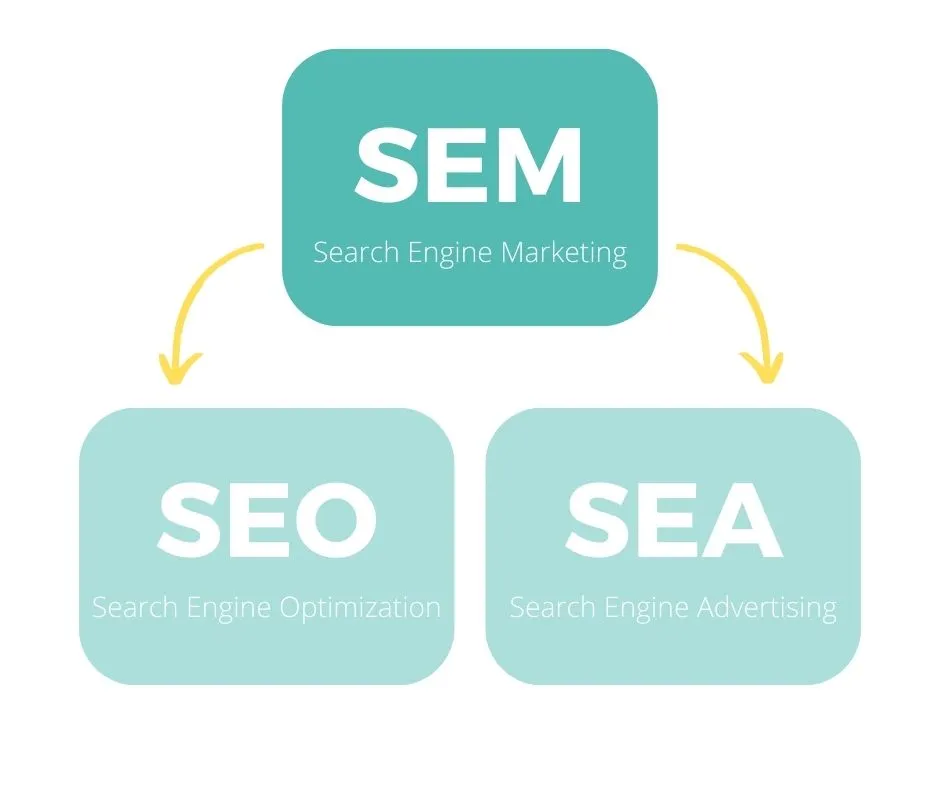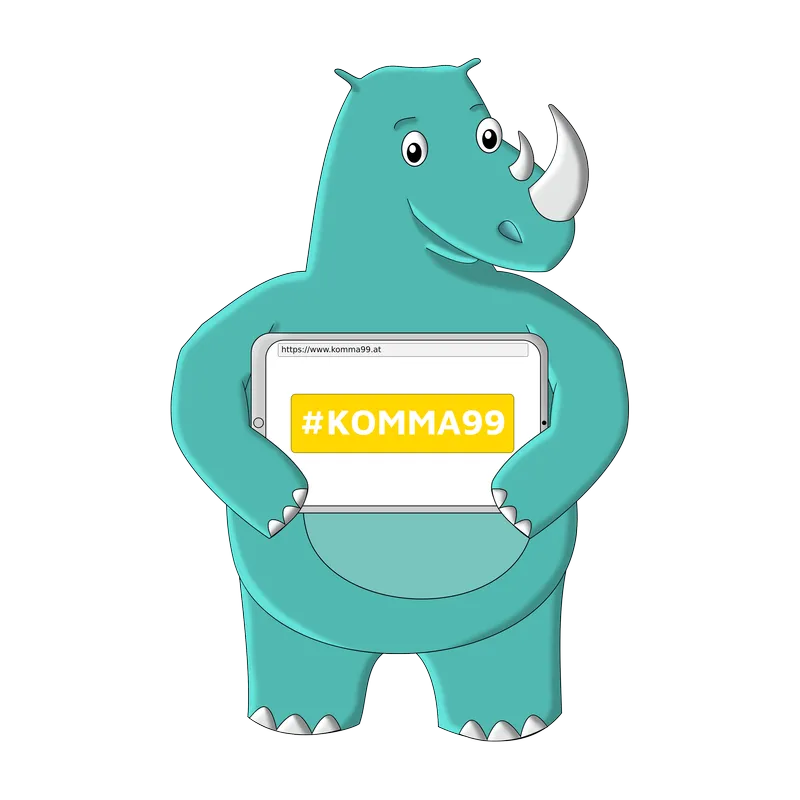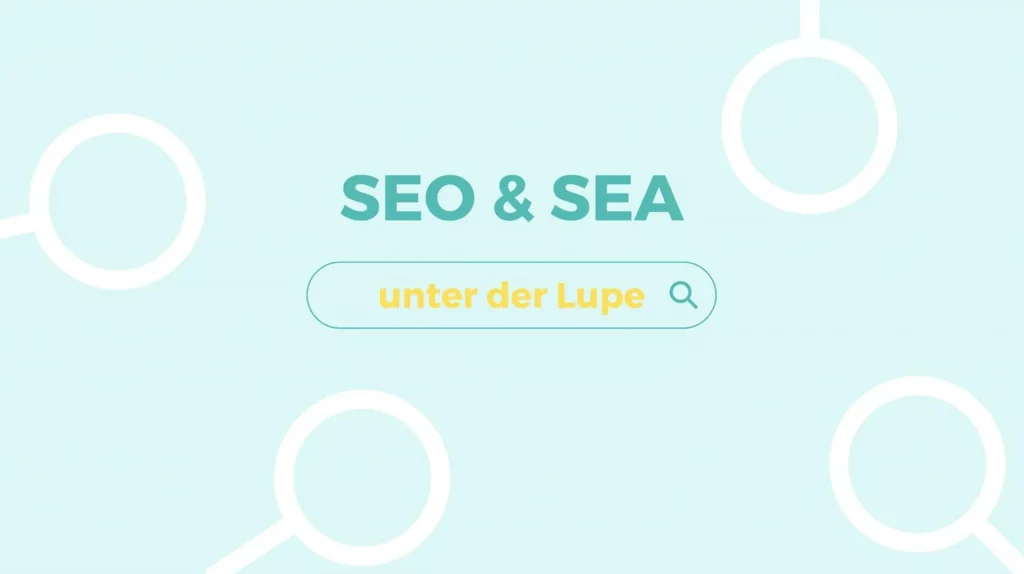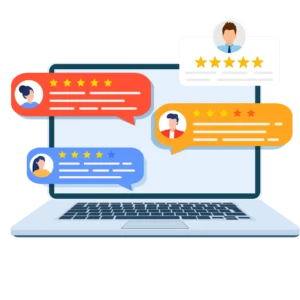We take a closer look at the two areas of SEO and SEA in online marketing
In online marketing, there are many different measures to make your website more visible and benefit from more customers - among them are SEO and SEA. The abbreviations stand for "Search Engine Optimization" and "Search Engine Advertising" - which are quite similar at first glance, but differ in fundamental characteristics.
In this blog article we will explain to you what SEO and SEA exactly mean, where their differences lie, but also their similarities and last but not least, how you can combine the two. We hope you enjoy reading!
What is SEO?
If you're already familiar with online marketing, you probably know what SEO is. SEO stands for "Search Engine Optimization" and describes the work on your website to be visible in search engines like Google.
The measures for an optimized website and organic traffic in the SEO field are based on four pillars: Technology, content, web design and backlinks. These four pillars are regularly built and improved, so that your website becomes stronger, more stable and sustainably visible. For whom are the optimizations made? For the growth of your business, of course, but also for the search engine Google and most importantly for your customers. Your (potential) customers should be able to find their way around your website, find all the information they need and ultimately be so enthusiastic about your company that they buy from you.
Let's go back to the SEO pillars for a moment so you can visualize what's really relevant:
- Technology
In the area of technology, the mobile view is optimized, but also the speed of your website, as well as the security and many other factors. The technology is not "visible", but incredibly important to be perceived by Google as relevant.
Texts, images, videos, graphics - everything your customer finds, reads and views on your website falls into the content area. In SEO, you build content with high quality on the one hand and with the consideration of relevant keywords on the other hand.
A beautiful website is great, but without a common thread and ease of use, it won't do you any good, because users will bounce back at the slightest obstacles. Accordingly, a user-friendly web design is essential for a successful site.
Backlink building is lengthy, but always pays off. This area is all about finding high quality websites that you can link to in turn. Whether it's through company listings, guest articles or other ways, if a good website links to you, you can't lose.
So you see, SEO includes many small sub-areas that together make up the big picture for organic traffic. Furthermore, you may have noticed that these sub-areas can't be implemented overnight. Yes, SEO is a process, the ranking sometimes takes time, but you will benefit from a sustainable strong website after some time.
 |
At KOMMA99, we like to compare SEO to building a house. It takes a while and good workers to build a house, but when the house is finished it will last for years. |
Advantages of SEO
- High quality base for visibility online
- Visibility remains for a long time even after the optimizations
- Tracking the website through tools lets act quickly in the SEO field
- Through the actions users gain trust in your website
- ...consequently also in your company
Disadvantages of SEO
- Measures must be taken and monitored over a period of time
- Hardly feasible as a single person
- Depending on the industry, it takes time to feel the success
What is SEA?
SEA, also known as "Search Engine Advertising" or Google Ads, describes the placement of advertisements for your website on the Google search engine. Through SEA it is possible to place your website, for well-chosen keywords, on the first place on the first page on Google. For example, when a user types "bike repair" into Google, they will find your website's ads at the top of the page. You then pay per click per user on your ad - the price differs depending on the relevance of the keyword.
For SEA (search engine advertising) you ideally start, as with SEO, with a keyword research, a target group analysis and a SEA strategy. Then you enter your ads in Google Ads - here you have to define different areas in order to place your ads correctly.
All done? Swoosh, you're on the first page at the top with your Google Ads ads, as long as you want to pay.
 |
At KOMMA99, we like to compare SEA to renting an apartment. You'll have a new apartment in no time, but if you stop paying, the apartment will be gone quickly. |
Advantages
- Quick placement through ads at the top of Google
- Costs can be planned well
- Exact settings can be made (regions, ...)
- Do not seem as intrusive as classic advertisements
- Fast results, less effort
Disadvantages
- Once no longer paid, all ads are gone
- Great dependence on the budget
- Risk of burning money with too little know-how
What is SEM?
SEM sounds quite similar to SEO and SEA - that's why you might think that SEM is another measure in online marketing. In fact, SEM translates to "Search Engine Marketing" - in short, marketing measures related to search engines like Google.
The interesting thing about it - SEM includes SEO and SEA. When an online marketer talks about SEM, he means SEO and SEA measures.
 |
SEO + SEA = SEM |

The differences between SEO and SEA
Through the last paragraphs you will have already noticed that search engine optimization and Google Ads are quite different, but also somehow similar. In the following we will show you the differences divided into individual points:
- Costs
At first glance, it's clear - search engine advertising costs money, search engine optimization does not. Or rather, clicking on the SERP costs money with SEA, but not with SEO. Of course, there is a lot of effort behind SEO, which you most likely can't easily manage on your own. This is where an online marketing agency comes into play, which helps you out, but of course also costs money. But once your SEO strategy is implemented, the many requests that come in through the SERPs don't cost money - the opposite is true.
- Time
Another difference is the time required. While an SEA strategy is quickly planned and implemented, search engine optimization takes a lot longer. You get quick results with Google Ads, but long-term results with SEO.
The similarities of SEO and SEA
So SEO and SEA seem quite different - but in the goal they have one thing in common: Both measures want to bring more (organic or paid) traffic to your website. They only pursue this goal with different methods.
But also in the beginning they are quite similar, because both SEM measures are based on a keyword research with subsequent keyword mapping. In search engine optimization, keywords are so important because they provide a direction for the optimizations, define the content of the content and generally form the basis. In "Search Engine Advertising" you need keywords so that you don't burn your money and actually place ads where they will be seen.
Combine SEO and SEA or rather separate them?
Can you answer this question so simply? As you have seen so far in this blog article, SEO and SEA are both in their own way very helpful measures in online marketing - with both you target the same goal, but also different ways.
SEO is often used, for example, when...
... constantly growing traffic to your website should be generated.
... you want to strengthen your website from the ground up.
... you don't have a monthly budget for advertising.
On the other hand, SEA is readily used when...
... a specific thing is to be advertised for a specific period of time.
... only one region is to be addressed.
... the customer's desire to buy is already there (then ads are more likely to be clicked on in the SERPs).
You see, both have their justification and both can be used by any company - either together or individually.
But if you combine SEO and Google Ads and have the budget and time resources, you can create a sophisticated strategy. The big common goal of SEO and SEA is to convince your users and generate more revenue in the long term.
Conclusion: A good mixture has never hurt
Ultimately, we believe that SEO and SEA are by no means mutually exclusive, but can even complement each other. SEA (Search Engine Advertising) can be a good basis for an SEO strategy, while ads can even be supportive in search engine optimization. By quickly placing your website at the top (with SEA) and building your website in the background (SEO) for organic traffic in a high-quality and qualitative way, your website is well prepared for visibility to your target audience.
Don't know whether you should use SEO or SEA? Then either read our blog or simply get in touch with us - our online marketing experts will be happy to help you in a free initial consultation!













